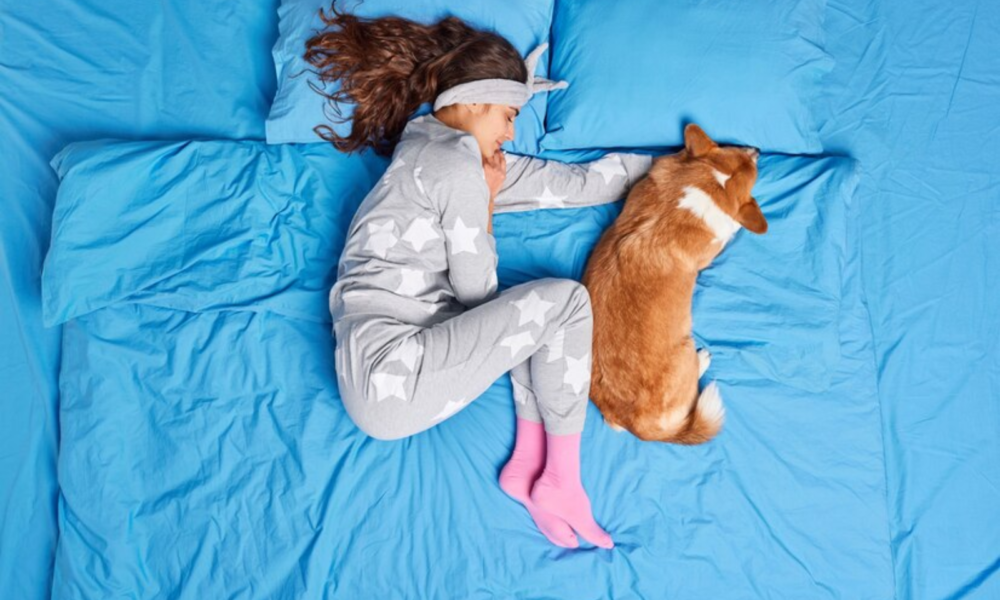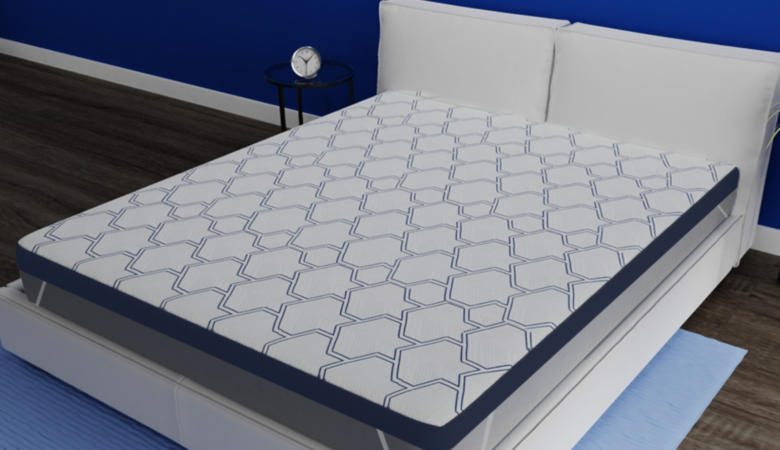Humans are social animals. Not only do we socialize with each other, but we also form strong bonds with pets. If you have a pet, you know your love for them is unlike any other. A form of this unconditional love might include cuddling or sleeping with your pet. Being in the same bed might offer warmth and comfort to both of you. Keep reading to learn the advantages and disadvantages of co-sleeping with pets!
Impact on the Quality of Sleep
Pets affect our sleep. According to a recent study, sleeping closely or snuggling in with pets is highly beneficial for your physical and mental health. It also helps lower stress levels and significantly improves emotional well-being.
On the other hand, some nocturnal pets, such as cats and dogs, can cause sleep interruptions. Animals tend to harbour germs in their fur and coats, which can cause allergies. As such, the quality of your sleep can be negatively impacted.
The positives of sleeping with your pet
Co-sleeping can benefit both you and your pet. In addition to providing increased security and comfort, shared body heat keeps you warm and cozy.
You may benefit from a sleeping partner if you suffer from chronic anxiety and depression. Pets help release stress and lower cortisol levels in your body.
Sleeping with your pets also provides a sense of affection and emotional bond, which helps battle loneliness.
The negatives of sleeping with your pets
However, if you are a light sleeper or suffer insomnia, sharing your bed with your jumpy puppy or hyperactive kitten can cause disrupted sleep cycles. Regular interruptions in your sleep cycle will cause health issues in the longer run.
There is a difference in the sleep-wake pattern between pets and humans. Animals, especially cats and dogs, have a habit of staying on alert all night long.
Some research suggests that pets’ snoring is also a significant contributor to sleep disruption for their owners. Animal fur, dirt and dander can often trigger allergic reactions in humans. Sleeping with your pets might aggravate your allergies, and you may have a runny nose or itchy throat in the morning.
Pets also expose you to bacteria and germs, especially if they are indoor-outdoor pets. This can be fatal depending on your immunity and can cause skin problems.
However, if you have weighed the pros and cons and have decided to continue snuggling in with your fur baby, here are some things to keep in mind!
- Don’t get in bed with a newborn puppy – A puppy needs to learn how to sleep in the crates alone to help build up his defences and sense of security.
- Avoid accidentally hurting your pets – Make sure to recognize your sleep patterns and avoid hurting your pet. If your rest involves a lot of tossing and turning, keeping your pet at a distance is better.
- Regularly wash your sheets – Maintain good hygiene and wash your bedding regularly to avoid unwanted fleas, bacteria and germs.
- Clean your pets’ paws – It’s advisable to wash your pets’ feet and brush their coat before letting them in. If your pet is an outdoor enthusiast, clean its paws and fur before sleeping.
- Walk your pet before bed – Getting your pet adequate levels of physical activity will ensure they remain healthy. A pro tip is to get a run or a play session in right before bedtime so that the exertion will tire them out, and they will sleep throughout the night.
- Keep a reasonably consistent schedule – Your sleep schedule should match your pets’ rhythm. Going to sleep and waking up around the same time every day can help your pets develop a consistent rhythm and attune their sleep cycle to yours.
Should you buy a new mattress for sleeping with your pets?
You don’t need a brand-new mattress just because you got a new friend. However, considering your sleep might get disrupted, you should look for mattresses that offer better sleep quality than others.
Animals have a habit of moving around, jumping in and out of beds, and changing sleeping positions. If your pets find adjusting to the new surface difficult, it might be time to get a new one.
Which brand should you trust for sleeping with your pets?
For a night of quality sleep, you need a mattress with good motion transfer, a firm build, and a bigger size to accommodate your pets. Livpure’s memory foam mattresses are a great choice if you want uninterrupted sleep and a comfortable surface for your pets.
You can choose a low or medium-motion transfer mattress so that you don’t wake up in the middle of the night if your pet moves.
Livpure’s HR foam mattress with 3D sleep tech comes with a cooling cover, a single breathable layer of 4 inches, and excellent motion transfer.
One of the pros of Livpure mattress is that they have a medium, firm build and three pressure-relieving zones for balanced support. Livpure offers three types of memory foam mattresses – single, queen and king-size. You can pick the right size based on your bed size. One of the cons of buying a mattress, however, is that you might have to spend a significant amount on it.
Livpure is an excellent choice when it comes to sleeping with your pets. It also offers a risk-free trial on the mattress, making it the most economical option.
Get a comfortable sleep with your pets
Most pet owners enjoy the warmth and comfort of sharing their beds with their pets. However, it would be best if you considered the potential disadvantages of sleeping with your pets as it might impact your health. While these are things that you can ensure, let your mattress do the rest of the work for you!








